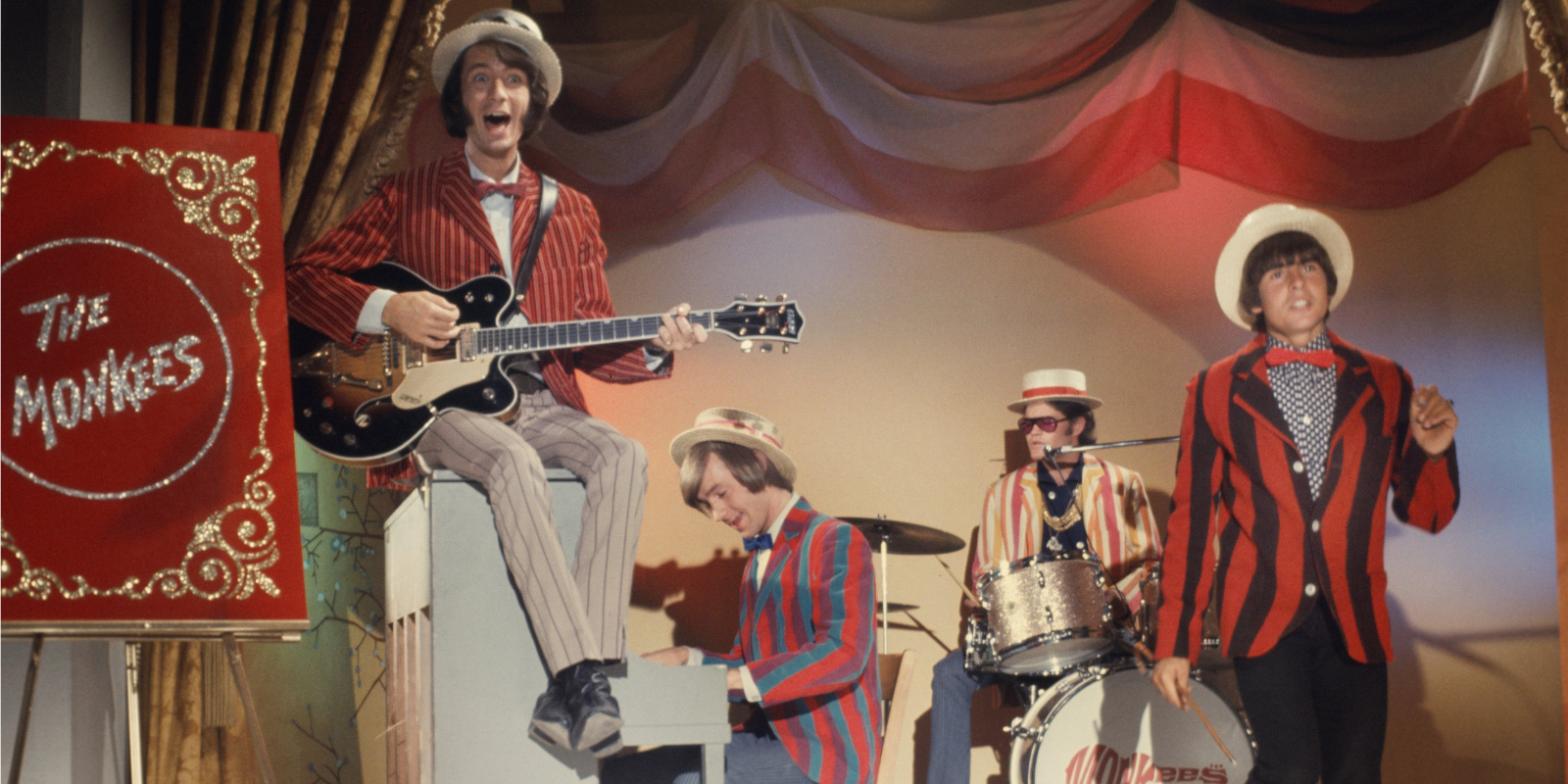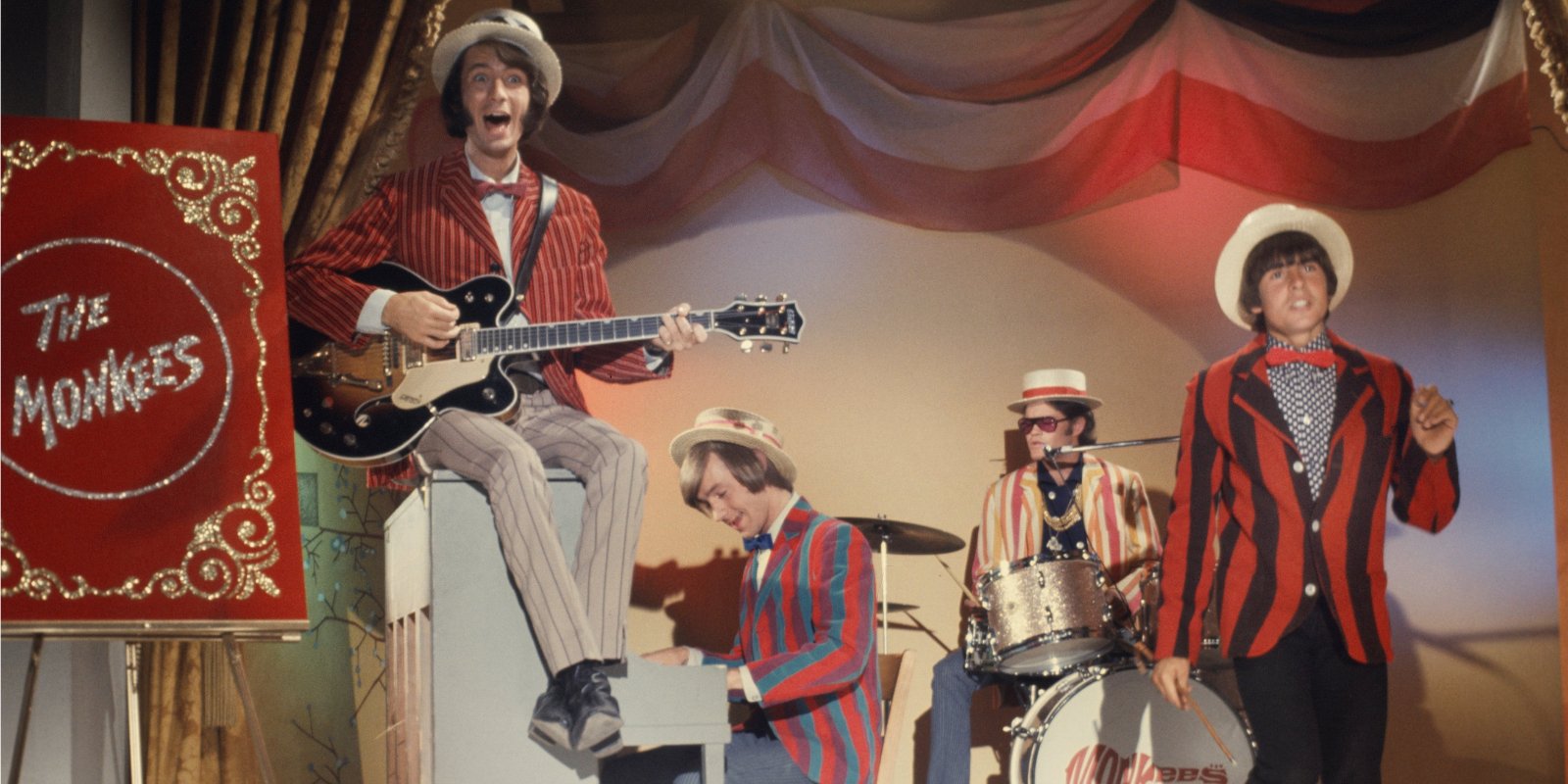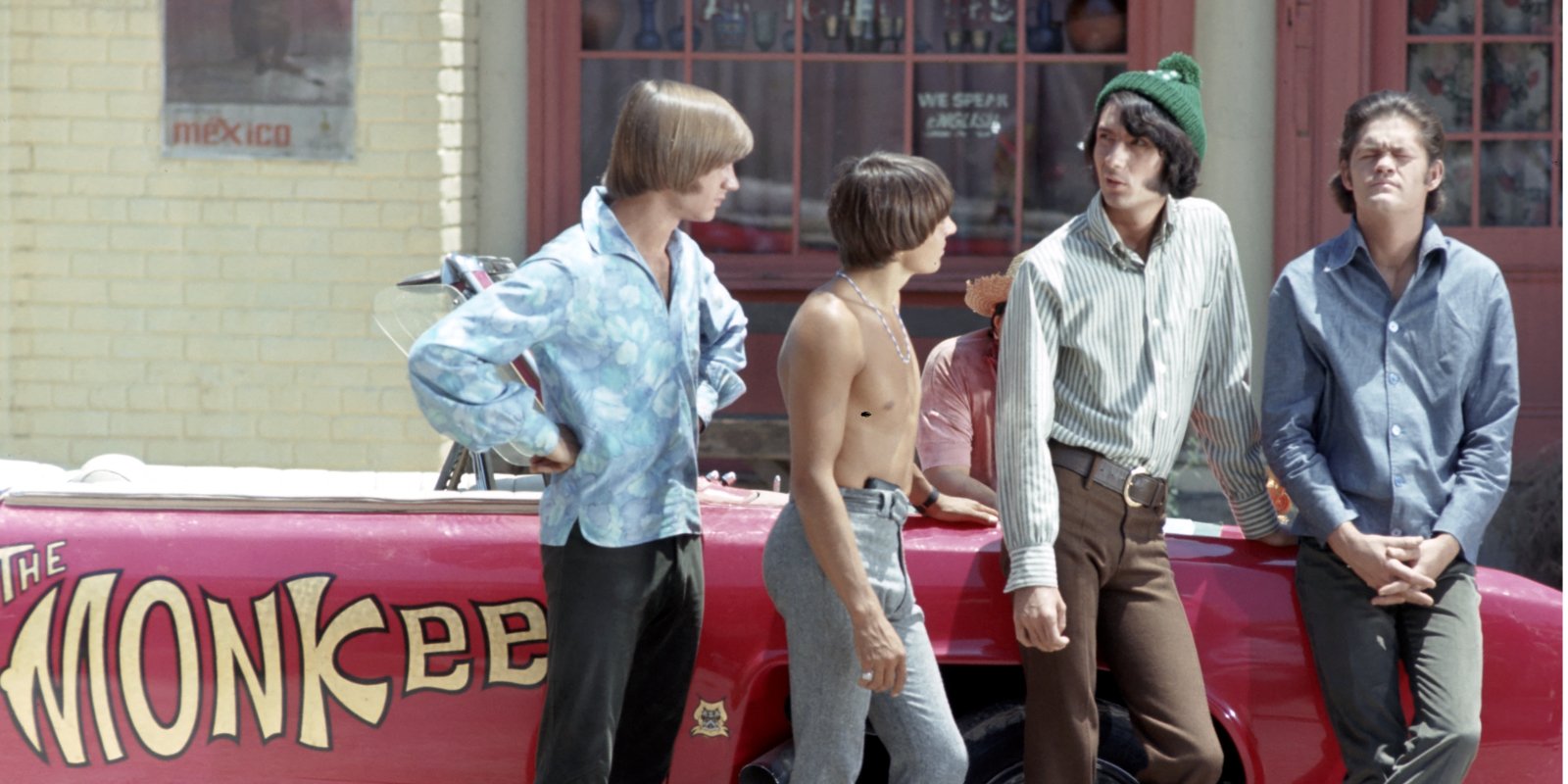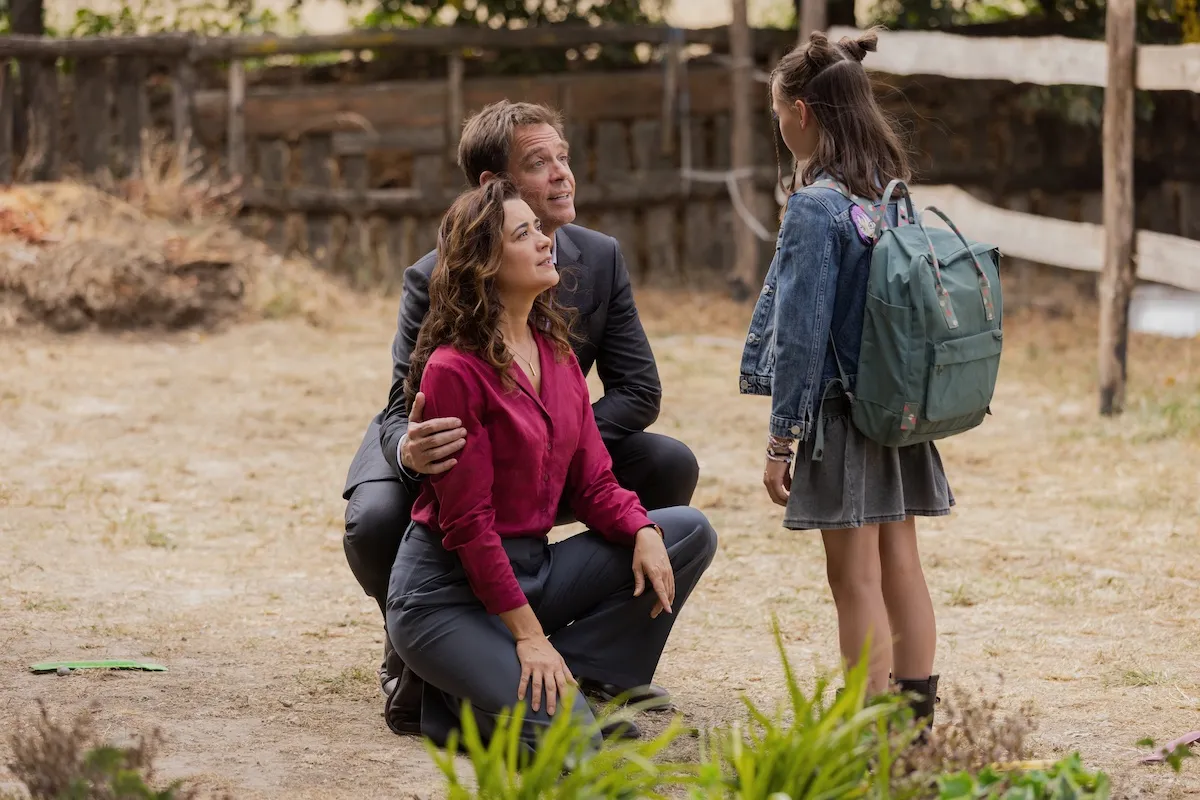
Mike Nesmith Said Fans of ‘The Monkees’ TV Series ‘Stumbled Onto Pure Gold’
As much as Mike Nesmith tried to distance himself from his past as a member of The Monkees, he revered the group’s accomplishments and impact on fans. The songwriter and guitarist believed that The Monkees, as a whole, created a positive impact in their own way. He once went as far as to say that fans of the group’s television series “stumbled onto pure gold.”

‘The Monkees’ TV show was unlike any other network series in the late 1960s
Mike, Davy Jones, Peter Tork, and Micky Dolenz were hired as actors to play a struggling rock band. The series linked the onscreen personas of Nesmith, Dolenz, Jones, and Tork to music, making for an enhanced viewer experience.
Per Biography, The Monkees producer Bob Rafelson had wanted to create a show based on his own experiences as a musician. He sold the concept in 1965 and needed a rock band that could perform to make the show work. Shortly after, an ad was placed in Variety looking for actors, and over 430 young men applied. The field of performers was narrowed down to Mike, Davy, Peter, and Micky.
The Monkees would break all kinds of barriers on television. The actors were the first to say the word the censored word “hell” on television [the network bleeped it out during post-production] and also the first to feature four young “hippie” men as its stars.
However, there was another more significant reason the show was different than other sitcoms of the late 1960s. “It wasn’t Father Knows Best,” Schneider once said of the series, as reported by Letty Rydell.
He continued, “It was the kids know best. The heroes were young people, and the heavies were older people. For the first time in TV history, no parental or authoritative figures were telling the youngsters what to do.”
Mike Nesmith once said viewers of the series ‘stumbled onto pure gold’
In a 1997 interview with Melody Maker, per The Monkees Live Almanac, Mike looked back on the series and called it “pure gold.”
“I was talking to a journalist, and he came to the series in its re-runs,” Mike explained. “He said what made it work for him was the child-like logic. It gave voice to his ten-year-old sensibilities, which was how old he was when he first saw it.”
Mike continued, “There was an understanding of life and how things worked that had more to do with his pre-pubescent sensibilities than the sixties. It was independent of the times, and I think that’s one of the reasons it’s hung on for thirty years and why people keep coming back to it. Because every ten-year-old that stumbles into it feels like they’ve stumbled into pure gold.”
However, Mike understood that, for the most part, the press wasn’t going to be kind

The Monkees’ concept of a group of performers hired to play a band on television. Suddenly becoming the band, recording, and touring after that was difficult for the press to understand during the band’s NBC era.
Mike understood the confusion then and tried to clear the air during interviews. However, he ultimately decided to let the group’s music stand independently.
“Oh yeah. The hostility from the tabloids was continual and unmitigated since the beginning. Somebody got it into their head that The Monkees weren’t a real band, and somehow this was wrong,” Mike said.
He concluded, “I always stared at them dumbfounded. Like, ‘That’s right! You now have the point of departure that everyone who enjoys The Monkees understands.’ It was not a real band; it was us playing and having a good time as not a real band. What it is, is real television.”


